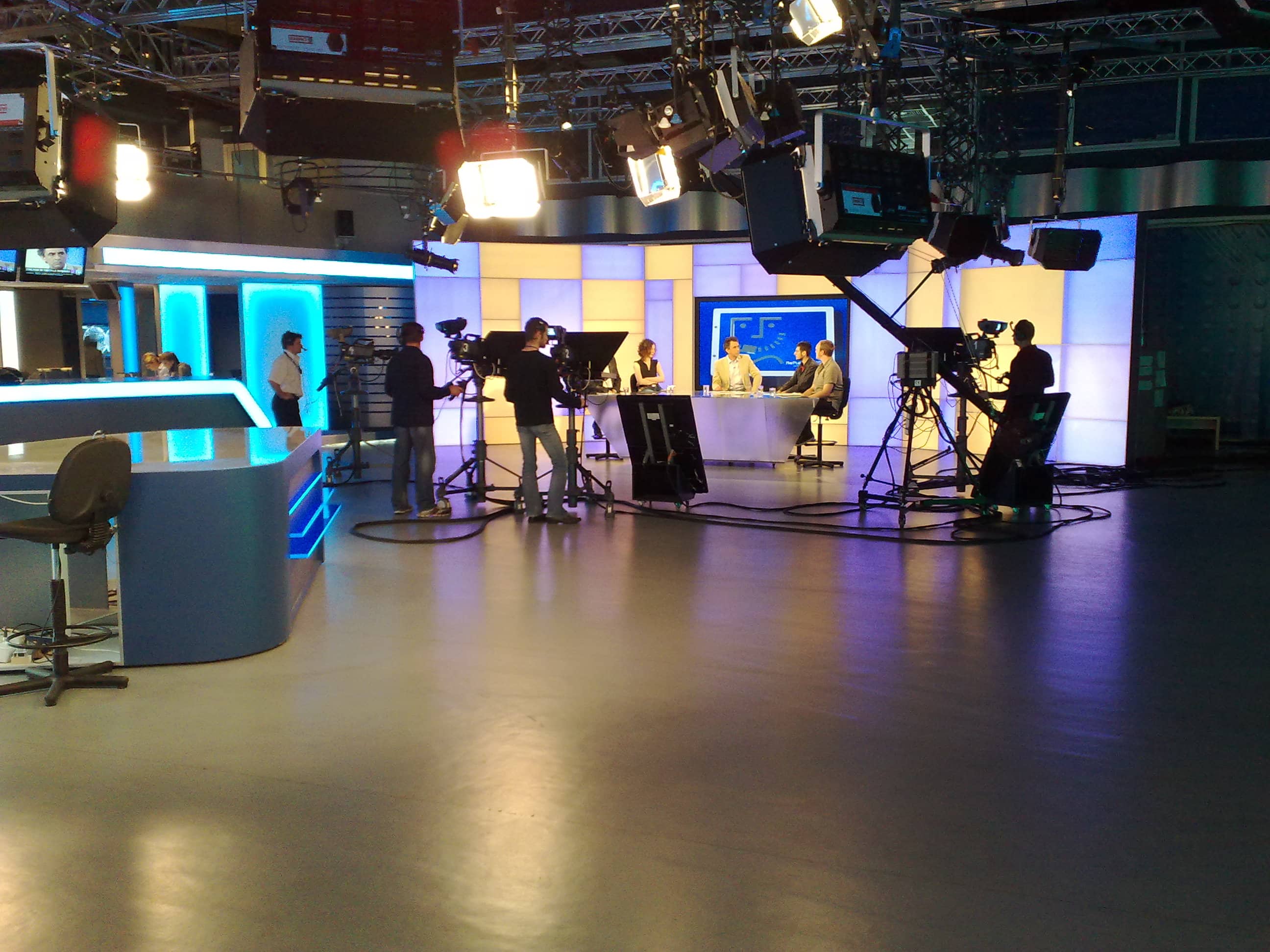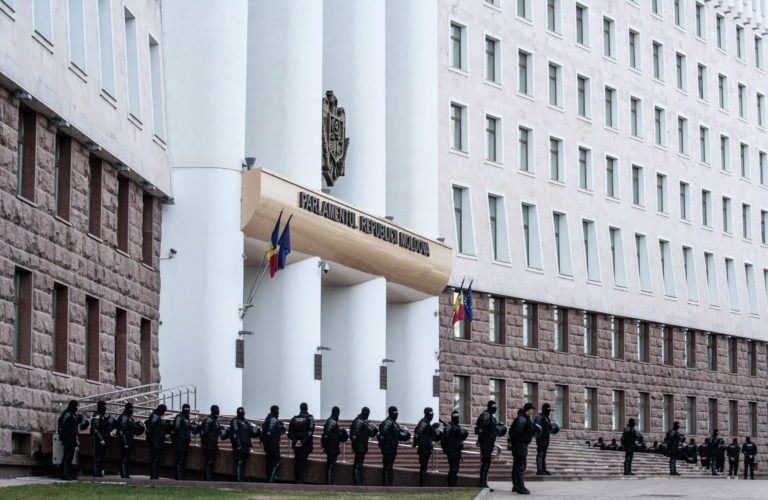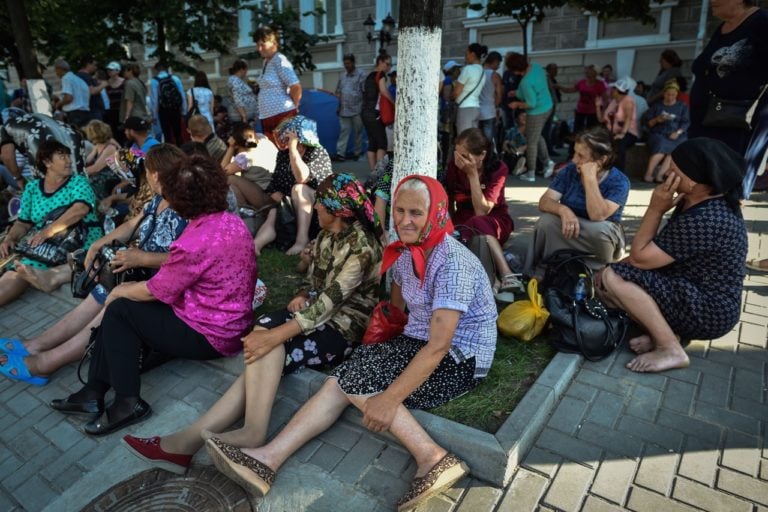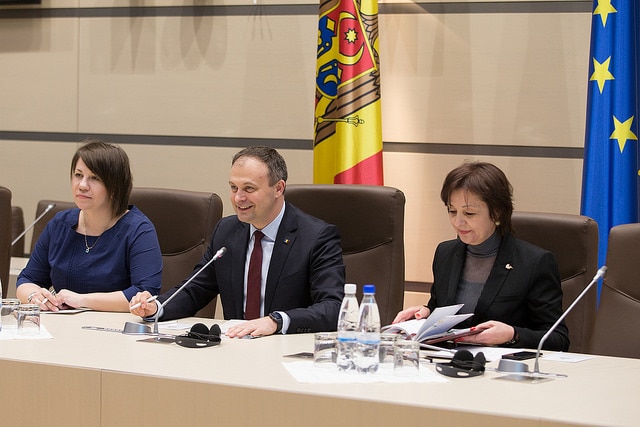With public trust at an all-time low, we need to examine how murky media ownership threatens pluralism and freedom of speech in Moldova.
This statement was originally published on opendemocracy.net on 28 March 2016.
Last year, Moldova underwent a deep political and social crisis. Around one billion dollars were embezzled from the state’s coffers. Large periods passed without a sitting government, and discord grew within the governing coalition and the Liberal Democratic Party (LDP) after the immunity of its leader Vlad Filat, a former Prime Minister, was revoked. Filat was arrested at the beginning of October, and accused of passive corruption.
Moldova’s woes have continued into the new year, as the nomination of Pavel Filip as prime minister on 15 January provoked the anger of thousands of protesters who started protesting non-stop in front of parliament. They’ve been there ever since.
These political battles have polarised society, and the country’s media along with it. Some outlets have supported the government, others have sided with the protesters. Their allegiance largely depends on their funding.
Who rules the airwaves?
Last March, after civil society and some media outlets began pressuring politicians, Moldova’s parliament legally obliged broadcasters to publish data on their owners and final beneficiaries.
Rumours circulated that the most influential TV stations in terms of audience figures were owned by Vladimir Plahotniuc, a local oligarch and politician seen by many as the power behind Filip’s government. The evidence only emerged in November 2015 after the necessary amendments entered into force: Plahotniuc owns four out of five TV stations with nationwide coverage, as well as three radio stations.
According to Moldova’s Broadcasting Coordinating Council, Vladimir Plahotniuc owns Publika TV, Prime TV, Canal 2 TV, Canal 3 TV and Publika FM, MuzFM and Maestro FM. According to the Moldstreet.md web portal, these four TV stations cover about 70% of Moldova’s TV market.
There were further revelations, too: LDP member of parliament Chiril Luchinschi stated that he was the owner of two TV stations, TV 7 and TNT Bravo. Likewise, it was revealed that RTR Moldova, Ren TV Moldova and Accent TV are all owned by Russian companies. Jurnal TV is owned by Victor Țopa, a Moldovan businessman who run his business in Germany, while the final beneficiary of Pro TV is American billionaire Ronald Lauder.
The fact that seven broadcast licenses can owned by a single person (namely Vlad Plahotniuc) seriously affects pluralism of opinion in Moldova. Vitalie Călugăreanu, a freelance journalist and correspondent for Deutsche Welle, remarks that this ownership structure can easily lead to a near-monopoly on public opinion.
“From this point of view,” Călugăreanu says, “the legislative body should take steps to diminish these figures. Beyond the fact that ownership must be transparent, and owners must be known, the Broadcasting Coordinating Council should urge the parliament to change the legislation so as not to allow one politician, and not only politicians, to hold more than two licenses.”
Print media has a comparatively small influence. Last November, a public opinion barometer poll found that just 2% of the population stating that they trust the newspapers. It should come as no surprise, therefore, that few politicians are interested in funding or managing newspapers directly.
But this does not mean that they completely ignore the main broadsheets. While most print media declare their independence, media monitoring data reveal their bias toward certain political parties.
A media monitoring report conducted during elections in November 2014 found that Timpul was biased towards the Democratic Party, Panorama towards the Socialists, Moldova Suverana in favour of the Liberal Democrats, and Nezavisimaya Moldova for the Communists. Importantly, there are still no legal provisions that oblige print media to disclose their real owners.
Send in the hacks
In Moldova, most journalists do not comply with professional and ethical standards when covering events. A range of studies clearly show that media owned by politicians are not only biased, but also heavily manipulate information and in some cases even employ propaganda techniques in order to promote the owners’ interests.
Petru Macovei, the Executive Director of the Association of Independent Press, states this manipulation across all sections of the media (broadcast, print and radio) speaks to a lack of professional integrity of some Moldovan journalists, who deliberately choose to serve vested political interests. “I feel that now, six years after Communists were discarded from power, the number of truly independent media outlets — not subordinated to political or economic groups of interest — has decreased,” concludes Macovei.
Tatiana Corai, the editor of the Media-Azi.md web site, says that the way the media have covered recent protests illustrates even more how mass media primarily serve the interest of their owners.
“The media was divided according to political preferences and ownership in those who supported protesters and those who supported the government. When the interests of owners or of those who are behind the owners consist in fighting for their votes, one can no longer speak about quality of media,” noted Corai.
A prime example is the behaviour of channels owned by Plahotniuc. For instance, Prime TV and Publika TV misrepresented protests outside the oligarch’s house, trying to distort their message and to personally discredit protesters.
Moldova po-russki
A huge space in Moldova’s media landscape is occupied by rebroadcasted content from Russia.
Most Russian-speaking Moldovans are traditionally pro-Russian in their political sympathies. The country’s Russian-speakers also watch Russian-language content produced in Russia, which dominate the Moldovan media market. According to the Barometer of Public Opinion in April 2015, about 40% of population get information from media from Russia, 73% — from Moldovan media, and 10% — from Romania and the EU. The trust of people in Russian media was pretty high — 47%, compared to the Moldovan media – 55%.
Trust in Russian media even increased over the last year, reaching 54% in November 2015. In comparison, only 43% of respondents said they trust Moldovan media, 39% trust media from Romania and 41% media from elsewhere in the EU. Prime TV, which rebroadcasts Russia’s popular Pervyi Kanal, has the highest share of the audience (51%), while the other two channels RTR Moldova and REN TV Moldova also have relatively high rating figures (18% and 10% respectively).
The most popular TV stations from Romania, with whom Moldova shares a common language, are TVR and Pro TV, which have 8% and 34% respectively.
According to Sorina Stefărță, the editor with Mediacritica.md web portal, media produced in Russia has a huge impact on public opinion. Opinion polls show rising support for a pro-Russian orientation, while Vladimir Putin is the most popular politician among Moldovans. Stefărță also sees the consequences of Russian media influence in parliamentary election results. The Socialist Party and its leader Igor Dodon massively exploited the image of Russian leaders, assuring voters that the relationship with Russia will improve substantially if the socialists win.
d
In the autonomous region of Gagauzia, the pro-Russian candidate Irina Vlah won elections for Bashkan (local governor) in March 2015. Russian TV stations gave Vlah’s campaign positive coverage, to the desired effect.
In a survey conducted by the Independent Journalism Center in October 2015, Russian media was trusted by 46% of respondents. However, Russian media was also thought to have more severe professional problems and to be the second most manipulative (after domestic Moldovan media). Russia was seen by 40% of respondents as a guarantor of peace and stability, compared to 21% who saw it as a destabilising influence.
Interestingly, 80% of those who saw Russia a peacekeeper and 58% of those who believed that US, rather than Russia, was a destabilising factor were ethnic minorities.
Kremlivision
The Moldovan authorities have started taking steps to fight propaganda and to protect the country’s information space. Thus, two draft laws to tackle this issue were developed in the spring of 2015. The amendments referred to the broadcasting and rebroadcasting of foreign programs, to the domestic shares of news and analytical programs, and applied sanctions for non-compliance with the legal provisions.
According to Tatiana Corai, the drafts were, however, controversial because they contained a proposal for regulating the content of broadcasting in a manner that could interfere with editorial freedom and could threaten freedom of expression.
“Claims about fighting Russian TV propaganda were considered by representatives of civil society to be a trap that would end up creating obstacles for journalists to critically cover Moldovan government activities. At the same time, some experts argued that propaganda should be counteracted through high-quality programs produced in Moldova which, presently, is a ‘mission impossible’. Media content produced in Moldova cannot compete with entertainment programs produced in Russia,” concludes Corai.
The Broadcasting Coordinating Council has started monitoring TV stations which rebroadcasted content from Russia and applied a range of sanctions to the local broadcasters accordingly. Accordingly, rebroadcasts of content from the TV channel Rossiya 24 are now banned in Moldova, as the channel did not comply with local legal provisions regarding fair and balanced coverage.
A more controversial way to address Russian propaganda has been to ban some journalists from entering the country. Throughout 2015 and into January 2016, Moldovan border police denied entry to journalists from the VGTRK, Lifenews, Channel One and REN TV television channels and the TASS and RIA news agencies. Aleksandr Balitsky, a journalist with Russian state broadcaster Rossiya 1, was denied entry to Moldova for five years.
The official explanation was that some foreign journalists did not have the proper accreditation issued by the Ministry of Foreign Affairs, and neglected to inform the border police about the actual purpose of their visit. Russia warned Moldova that it will react accordingly if the Moldovan authorities continue denying access to Russian journalists.
Dunja Mijatović, the OSCE Representative on Freedom of the Media, has also called on the Moldovan authorities “to reconsider the use of restrictive and selective measures in relation to media outlets affected by the entry ban and to allow all journalists to pursue their professional activities unhindered”.
Chișinău cynics
In sum, the future for freedom of expression and independent media in Moldova does not look too bright.
Politicians’ influence over media regulatory bodies, public and private broadcasters seems set to grow. They have now set their sights on online media, and will try hard to keep their influence, for both financial and political gain. The influence of international media will also remain a cause for concern for Moldova’s civil society as the political crisis deepens.
Until real change comes, Moldovans can only repeat that time-worn saying: “Don’t believe everything you see on the news”.
The fact that seven broadcast licenses can be owned by a single person seriously affects pluralism of opinion in Moldova.
Last November, a public opinion barometer poll found that just 2% of the population stating that they trust the newspapers
“Six years after Communists were discarded from power, the number of truly independent media outlets — not subordinated to political or economic groups of interest — has decreased”
Until real change comes, Moldovans can only repeat that time-worn saying: “Don’t believe everything you see on the news”
“Claims about fighting Russian TV propaganda were considered by representatives of civil society to be a trap that would end up creating obstacles for journalists to critically cover Moldovan government activities”
Nadine Gogu is the director of the Independent Journalism Center (IJC), a leading media resource center in Moldova that provides assistance to journalists and media institutions throughout the country. She entered journalism in 1995, and worked at FLUX News Agency and “TIMPUL” (“The Times”) as editor-in-chief and deputy editor-in-chief. In addition to her current role at IJC, she is an instructor at Chisinau School of Advanced Journalism.
This article was originally published by OpenDemocracy under a Creative Commons Attribution-NonCommercial 4.0 International licence.



